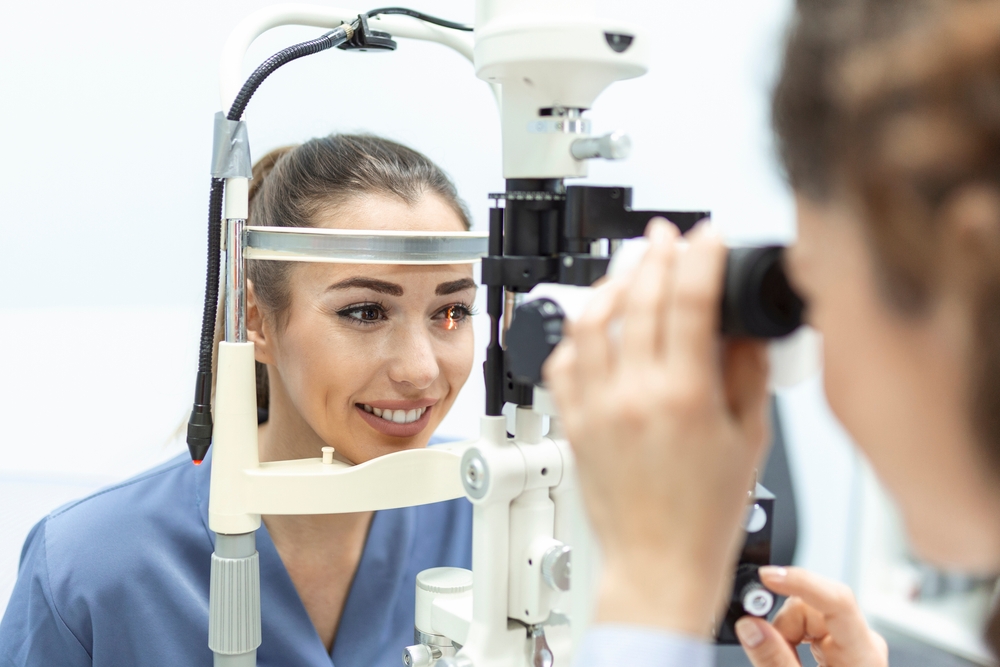
At Belding Family Eye Care, we believe your vision is more than just a number on a prescription—it’s a key part of how you experience the world. Whether you’re taking in the sights of the Flat River, reading a favorite book, or driving through town, your eyes work hard every day. That’s why routine eye exams are essential, even if you think your vision hasn’t changed. These exams do more than check how well you see—they help detect potential issues before they become serious.
What Is a Comprehensive Eye Exam?
A comprehensive eye exam is more than just checking how well you see—it’s a full evaluation of your eye health and vision. Even if you don’t wear glasses or contacts, routine exams can help detect underlying conditions that may not have noticeable symptoms. During your visit, our experienced team will assess your vision clarity, eye function, and overall eye health to ensure that your eyes are in top shape.
What to Expect During Your Exam
When you come in for your routine eye exam, we’ll walk you through each step so you feel comfortable and informed. Here’s what’s typically included:
Visual Acuity Test: This measures how clearly you can see at various distances using the classic eye chart.
Refraction Assessment: If you need glasses or contacts, this test helps determine the right prescription for you.
Eye Muscle & Alignment Testing: We check how well your eyes work together and assess for any alignment issues.
Pupil and Peripheral Vision Check: This helps identify any neurological concerns that may impact your vision.
Intraocular Pressure Test (Tonometry): This painless test screens for glaucoma by measuring the pressure inside your eyes.
Retinal Exam: We examine the back of your eye, including the retina and optic nerve, to detect conditions like macular degeneration and diabetic eye disease.
Each of these tests plays an important role in getting a complete picture of your eye health.
What Can an Eye Exam Detect?
Routine vision exams are about more than just updating your prescription. They can detect a wide range of issues early on, including:
Nearsightedness, farsightedness, and astigmatism
Eye diseases like glaucoma, cataracts, and macular degeneration
Signs of diabetes, high blood pressure, and other systemic health conditions
Digital eye strain and its impact on your vision
Dry eye syndrome, which is common among those who spend a lot of time on screens
Early detection is key to preventing serious vision loss and ensuring that any necessary treatment starts as soon as possible.
The Importance of Annual Eye Exams
For most people, an annual eye exam is the best way to stay on top of their eye health. However, some individuals may need more frequent check-ups, including:
Those with a history of eye disease
Individuals with diabetes or high blood pressure
Contact lens wearers
People experiencing frequent headaches or visual disturbances
Children with vision development concerns
If you fall into a high-risk category, our team will recommend a schedule that ensures you receive the care you need.
Why Choose Belding Family Eye Care?
At Belding Family Eye Care, we’re more than just an optometry office—we’re part of the Belding community. Our team takes the time to listen to your concerns, provide personalized care, and ensure you leave feeling confident about your vision health.
We use advanced technology to detect eye conditions early, and we believe in educating our patients so they can make informed decisions about their eye care. Plus, we strive to make your visit as comfortable and stress-free as possible.
Whether you’re due for your annual exam or have concerns about your vision, schedule your appointment with Belding Family Eye Care for expert care. Visit our office in Belding, Michigan, or call (616) 794-9088 today.







